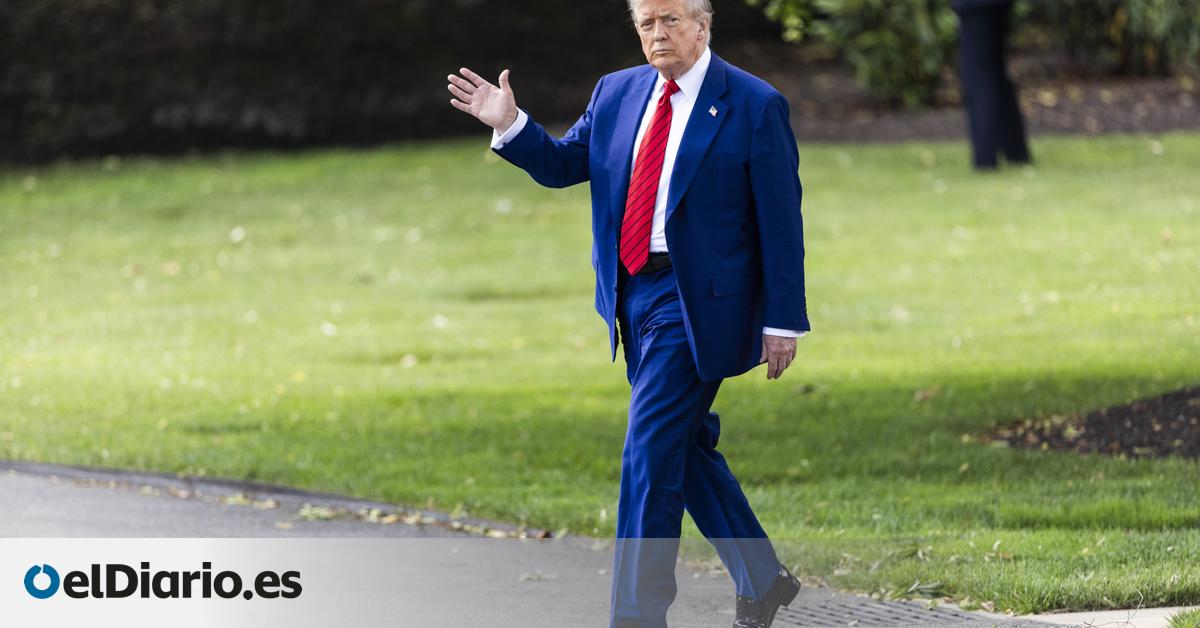
Donald Trump responded this Friday to Pedro Sánchez. And he has accused Spain of not being paying “notoriously enough” after Pedro Sánchez’s non -5% of GDP in defense in the framework of NATO, which celebrates its Biannual Summit on Tuesday and Wednesday near Hague.
Answering questions from journalists before traveling to their New Jersey golf course, Trump said: “NATO members must spend at least 5% of their GDP.”
And he added: “Well, NATO will have to deal with Spain. Spain has always been a country that has paid very little. They have always been very good negotiators or have not been doing the right thing. I think Spain has to pay what everyone else has to pay. Spain is known for being a country that pays very little, almost the minimum.”
“I think they should pay 5% in defense,” Trump insisted: “I don’t think we should do it, but I think they do. We have been spending and supporting NATO for a long time, in many cases paying almost 100% of the cost. Therefore, I don’t think we should do it, but I think NATO countries should do so, without a doubt.”
Sánchez’s not and the Spanish exception
Pedro Sanchez is saying ‘no’ to Donald Trump through the Secretary General from NATO, Mark Rutte. The Government of Spain, which recently announced its commitment in defense of 2% despite the fissures that it generates in the coalition government – with IU, the common and add – and in the majority of investiture – with Podemos, ERC, EH Bildu and BNG -, now it rejects the requirement of the White House of raising the objectives at 5% –3% by the way of classical spending in defense and 1.5% games as cybersecurity, for example.
The mechanism of conclusions in NATO is based on consensus. That is, the texts are given by good except that some country present objections and, then, an agreement is sought. They are not voted, there are no qualified majorities or lock minorities. But everyone has to be ‘on board’.
In this way, if a country leads its opposition to a central issue such as the common objectives of the 32 member countries of defense spending, it could block the conclusions.
Pedro Sánchez’s letter to Mark Rutte not only shows his 5% rejection, but raises an exit by the exceptions: that 5% is set if he wants, but that countries are allowed to get where they believe they can reach.
“Spain cannot commit to a specific objective of spending in terms of GDP at this summit,” Sánchez replies to the proposal made by NATO, which proposes to reach 5% of GDP in military spending in 2032, which is the requirement of Donald Trump to the allies. For Spain, 5% would mean an annual expense of 80,000 million euros the defense spending.
“For Spain, fulfilling 5% would be not only irrational but counterproductive, since it would move Spain away from optimal spending and hinder EU’s efforts to strengthen its security and defense ecosystem,” he says in the letter. What Sánchez argues is that the community club is working on interoperability, joint purchases or the balance of transatlantic defense -looking to Russia, but also to the South Flannco, which is essential for Spain or Italy -and that it needs “maneuvering margin”.
“It is the legitimate right of each government to decide whether or not to make those sacrifices. And as a sovereign ally, we choose not to do so,” says Sánchez, who opposes, therefore, radically, the proposal for a joint declaration, which requires the unanimity of the 32 NATO member states. However, the president argues that he does not want to “obstruct the results of the summit” that will be held next week in The Hague and raises “a more flexible formula in this year’s statement”, which allows each ally to choose the way to meet its capabilities objectives and enter “an optional spending objective”.
Source: www.eldiario.es

